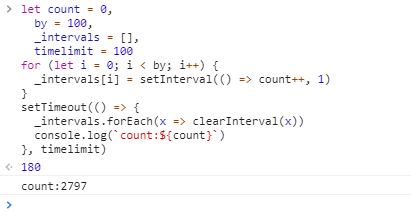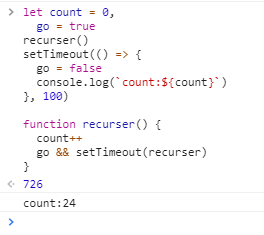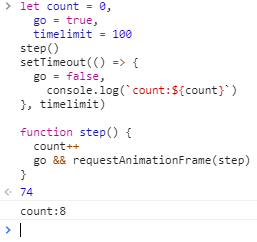I have a node script which is supposed to utilize all the CPU resources a single node process could get. But I found setInterval to be too slow.
And sure enough I found this in the documentation:
When delay is larger than 2147483647 or less than 1, the delay will be set to 1.
source: https://nodejs.org/api/timers.html#timers_setinterval_callback_delay_args
Now I wonder if there is a way to reduce the limit further or if there is an alternative function that I could use.
I can't just use a normal loop because there are other asynchronous things that need to run at the same time.
Edit:
Again: I can't just use a normal loop because there are other asynchronous things that need to run at the same time.
I'm not sure why this is so hard to understand.
While a normal loop is running, you are blocking the execution of everything else. It doesn't matter if you put the loop in another asynchronously executed function.
What does this mean?
Let's look at some examples:
setInterval(()=>{console.log('a')},1000) // asynchronous thing that needs to run in the background
while (true) {
// do whatever
}
What will this code do? It will block everything. console.log('a') will not be executed continuously.
setInterval(()=>{console.log('a')},1000) // asynchronous thing that needs to run in the background
setTimeout(()=>{
while (true) {
// do whatever
}
}, 1)
This will also block the execution of the intervals as soon as the while loop starts.




setIntervalthen? Just put it in an infinitefororwhileloop! – Gas